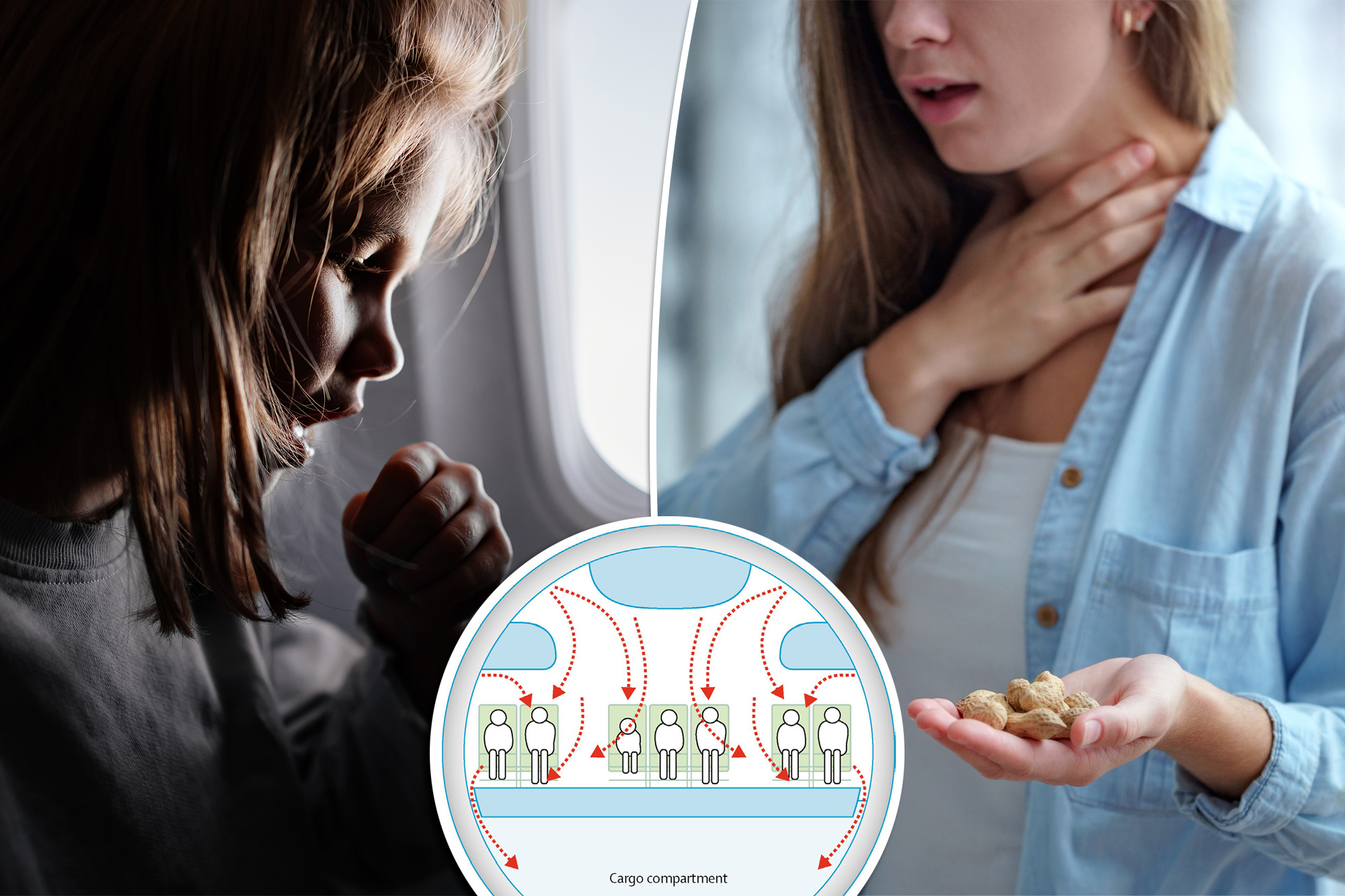
They have hit the point.
In new research, UK allergy and aviation medicine specialists dispel the widely held belief that nut allergens are spread through aircraft ventilation systems.
“In fact, allergic reactions caused by food are about 10-100 times less common on flights than ‘on the ground,'” the researchers wrote in their scientific review published Tuesday in the journal Archives of Disease in Childhood.
In examining studies of airborne food allergens, the authors say that allergen residue on in-cabin surfaces poses the greatest in-flight risk—a risk likely exacerbated by the airline’s rapid turnaround time.
Cleaning tray tables, seat surfaces, and seat entertainment systems at the start of a flight with disinfectant wipes “is particularly important,” the study authors write, “given the minimal cabin cleaning that occurs between flights, particularly with carriers low cost”.
Researchers say notices asking passengers not to consume nuts during a flight are unlikely to reduce the risk of allergic reactions during the flight – and may instead provide false reassurance.
Air is exchanged every three to four minutes during large commercial flights—about half is recirculated air that has passed through filters that remove dust, vapors and germs and capture airborne food particles. The other half is outside air.
The ventilation systems are designed to circulate air through the aircraft, rather than across the passenger cabin, the study authors explained, reducing the potential for aircraft-generated pollutants to spread through the cabin.
Allergic reactions to airborne food particles are rare. Exceptions include seafood-sensitive people exposed to fish or shellfish vapors and bakers who develop asthma from inhaling wheat flour as part of their job.
In 2019, reality star and entrepreneur Bethenny Frankel, who has a rare fish allergy, called a flight she took serving bass a “death trap.”
As for peanut allergens, they “can be detected at very low levels in the air when shelling the nuts, but the dust settles quickly and can only be detected in very close proximity to the nuts,” the study authors wrote.
About 4.6 million adults in the U.S. have a peanut allergy, with more than 800,000 of them developing the allergy as adults, according to 2021 research.
An allergic reaction can lead to hives, swelling of the throat and lips, difficulty breathing, stomach cramps, nausea, vomiting, dizziness and, in severe cases, anaphylaxis, a life-threatening reaction that requires immediate medical attention .
Flyers at risk of anaphylaxis should carry an EpiPen in their carry-on luggage, the authors of the latest study advise, as these are not always included in on-board medical kits, nor are cabin crew always allowed to use them.
“Airlines should have clear food allergy policies that are readily available from their websites or upon request,” the researchers added. “These policies must be consistently enforced by both ground staff and cabin crew in order to ensure the safety of food allergic passengers and their caregivers.”
#surprising #reason #youre #safer #allergic #reactions #flight #ground
Image Source : nypost.com


